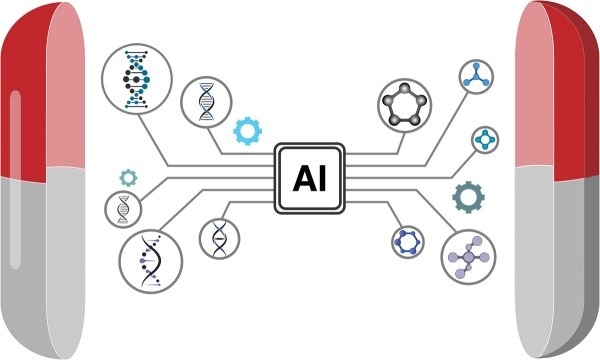A research team from the Computational Biology Department at the School of Computer Science of Carnegie Mellon University has devised a new method that might revitalize the hunt for natural product medications to treat viral infections, cancer, and other diseases.

Image Credit: Carnegie Mellon University.
The Metabolomics and Metagenomics Lab’s machine learning algorithms link the signals of a microbe’s metabolites with its genetic signals to determine which likely correlate to a natural product. Knowing this allows researchers to isolate the natural substance and begin developing it as a potential drug.
Natural products are still one of the most successful paths for drug discovery. And we think we're able to take it further with an algorithm like ours. Our computational model is orders of magnitude faster and more sensitive.”
Bahar Behsaz, Study Lead Author and Project Scientist, Carnegie Mellon University
The team was able to examine the metabolomics and genetic data for over 200 microorganism strains in a single investigation. The algorithm not just found the hundreds of natural product medications predicted by the researchers but also uncovered four additional natural products that exhibited the potential for future drug development.
The team’s findings were recently published in Nature Communications. The study titled “Integrating Genomics and Metabolomics for Scalable Non-Ribosomal Peptide Discovery” describes the team’s creation of NRPminer, an artificial intelligence tool that aids in the discovery of non-ribosomal peptides (NRPs).
NRPs are a form of natural product that is employed in the production of numerous anticancer medicines, antibiotics, and other therapeutically useful medications. However, they are hard to detect and much more difficult to recognize as potentially useful.
What is unique about our approach is that our technology is very sensitive. It can detect molecules with nanograms of abundance. We can discover things that are hidden under the grass.”
Hosein Mohimani, Assistant Professor and Head, Metabolomics and Metagenomics Lab, Carnegie Mellon University
Natural products have provided the basis for most antifungals, antibiotics, and numerous anticancer medicines.
Penicillin is one of the most well-known and widely used natural product-derived medications. It was found by chance, as were many other drugs derived from natural products. However, replicating such a chance in the laboratory and on a large scale is challenging.
Trying to find natural products takes time and effort and can take many years and millions of dollars. In recent decades, major pharmaceutical companies have largely abandoned the hunt for new natural products.
However, by adding machine learning algorithms to genomics research, researchers have established new potential to find and isolate natural compounds that may be useful.
Our hope is that we can push this forward and discover other natural drug candidates and then develop those into a phase that would be attractive to pharmaceutical companies. Bahar Behsaz and I are expanding our discovery methods to different classes of natural products at a scale suitable for commercialization.”
Hosein Mohimani, Assistant Professor and Head, Metabolomics and Metagenomics Lab, Carnegie Mellon University
The four additional natural compounds uncovered during the investigation are now being examined by the researchers. A team led by Helga Bode, head of the Institute for Molecular Bioscience at Goethe University in Germany, is analyzing the products, and two have been determined to show potential antimalarial capabilities.
Source:
Journal reference:
Behsaz, B., et al. (2021) Integrating genomics and metabolomics for scalable non-ribosomal peptide discovery. Nature Communications. doi.org/10.1038/s41467-021-23502-4.